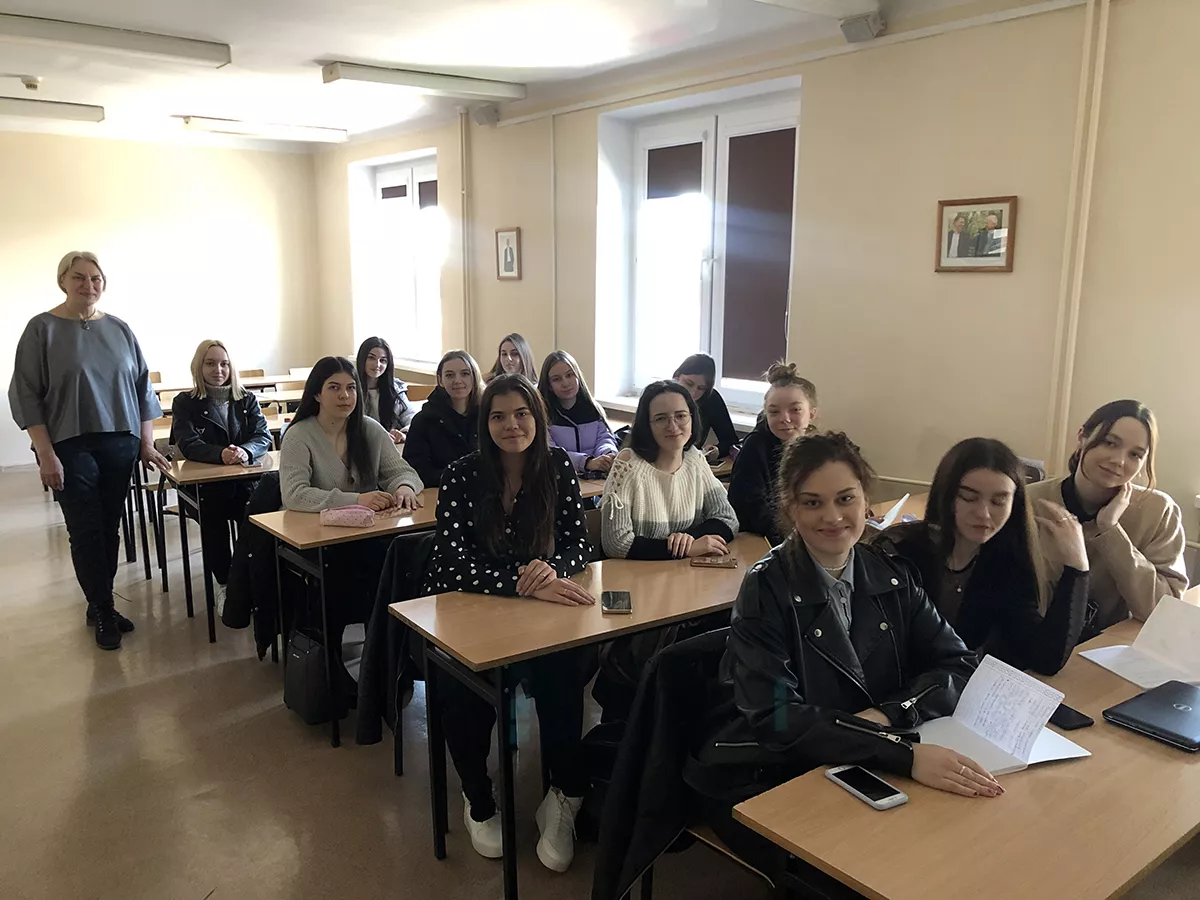The Polonists’trip to Częstochowa to study under the double degree programme was planned for a long time and scheduled for February 28. Could anyone have predicted that our students would find themselves on the Ukrainian-Polish border with tens of thousands of Ukrainian refugees and that the Republic of Poland would become for them not just a place of study but also a safe harbour that those in Ukraine are now more or less deprived of?

A short response-impression from Anna Zotova, a Polish Faculty master student, who, together with 17 other students of the Faculty of Philology and Journalism, is currently studying on a double degree program at the Jan Dlugosz University of Humanities and Natural Sciences. "It is difficult to write about studying outside the homeland where the war is taking place. But it is not difficult to talk about what incredible people we meet here in Poland. We are now in Częstochowa, and our second educational institution today is Jan Dlugosz University of Humanities and Natural Sciences. Of course, even before the war, we set out to study here for an experience that would require enormous internal resources, translated documents, received visas, shared thoughts about the trip. Now we feel love and care in every single detail, in every word of support and in every action.
So, here we are the 18 ladies, bachelors and masters. There are more of the former degree. And none of our guys –Denys and Yaroslav are here, though they were supposed to be in Częstochowa, but did not go for a reason. Not only do we miss them, but also all our Polish classmates and even lecturers. Some of the staff have already contacted the students online, some are already discussing master's thesis online. We study Polish philology, but have different specialisations: some of us study Film i Realizacja Obrazu Filmowego (Film and Film Production) while others specialise in Dziennikarstwo (Journalism).
How are our classes going? As a constant mega-empathic student-lecturer cooperation. Definitely, 80 % is still talking about the war, Ukraine, traditions, news feeds, fakes, propaganda. The other 20 % is devoted to immersions in language, contexts of literature, culture, cinema, art, religion (this is inevitable: we are still in Poland).
What are our subjects? For example, bachelors now have a great opportunity to study the Polish literature in depth in a new format. Rhetoric is also singled out, because this subject enables to master self-expression, concisely and correctly which is really important for the perception of students and in general for communication between people. Masters choose a research topic in Polish, a really difficult choice, because the relevance and emphasis have shifted. At the same time, the subjects deal with media, literary criticism and ways of interpreting and using information. By the way, some words about the language. Polish teachers and fellow students are comforted by our language skills and lack of fear of communication. The university has numerous experiences of exchanges, double degrees, so they still have something to compare. Such words, among other things, give us optimism and confidence in our knowledge gained at Lesya Ukrainka Volyn National University.
A few words about the city. In Polish, the equivalent of ‘cozy’ is the word ‘przytulne’. So, indeed, Częstochowa seems to gently embrace, allowing one to enjoy the sun's rays, straight, easily navigated streets, open faces of residents and beautiful sharp spiers of numerous churches. The whole atmosphere makes me wake up every day with pleasure and gratitude in my heart.



A few more words of gratitude. From the first words of Professor Violetta Jaros, we understood: we are safe, we are taken care of. And the constant connection with the curator of the programme Yulia Svyatoslavivna Vaseiko adds certainty: they believe in us and want to give the best possible experience and security. We know and feel: this is a story about friendship – from the moment the idea of exchange emerged to how we feel here. And no, we are not running away. We translate lists, medicines, information for refugees, fight on the information front, repel sentiments towards Russian from foreigners, look for tourniquets, drones, thermographic cameras on Polish sites and also tell about our sacred feelings. Whenever someone doubts whether it is worth talking to us about the war, we answer that it is even more than that! Indeed, it is worth facing the reality we are in and our capacity to help Ukraine now. Glory to Ukraine!"
The Faculty of Philology and Journalism
